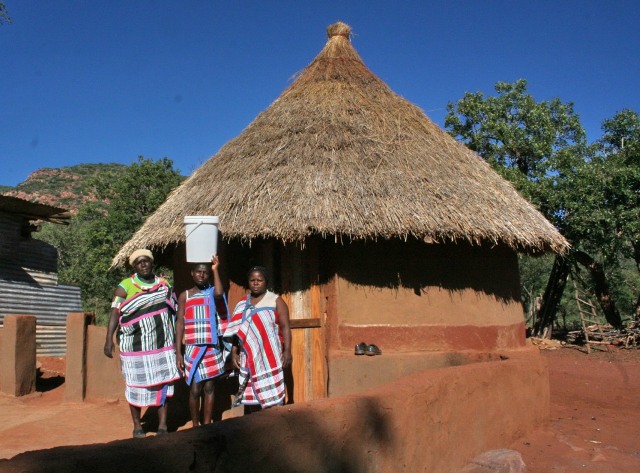
The Soutpansberg Mountains of the Limpopo Province in South Africa is the home of the Venda people, the smallest black nation in South Africa. The Venda culture is steeped in the spirit world and finds
expression in their woodcarvings, pottery and the decoration of their buildings.
The history of the Venda starts from the Mapungubwe Kingdom (9th Century) where King Shiriyadenga was the first king of Venda and Mapungubwe. The Mapungubwe Kingdom stretched from the Soutpansberg in the south, across the Limpopo River to the Matopos in the north. The Kingdom declined from 1240, and power moved north to the Great Zimbabwe Kingdom.
The first Venda settlement in the Soutpansberg was that of the legendary chief Thoho-ya-Ndou (Head of the Elephant). His royal kraal was called D’zata, the remains of this have been declared a National Monument.
The Venda culture is built on a vibrant mythical belief system, and water is an import theme, believing lakes and rivers to be sacred, and that rains are controlled by the Python God. One of the most sacred sites of the Venda is Lake Fundudzi. Here annually the Domba Python Dance is held, an offering of beer is poured into the lake, and young maidens, as the final stage of their initiation into womanhood, line up in single file and dance in long winding lines, like a snake. The Domba is important to secure good rains for the following season.
Drums are central in the culture and there are legends and symbols linked to them. Most sets of drums are kept by chiefs and headmen, and comprise of one ngoma, one thungwa, and 2 or 3 murumba.
An important part of Venda culture is ancestor worship and their close ties to the spirit world. The Sangoma or traditional healer is believed to nave access to the spirits and seeks guidance from the ancestors. Many Venda consult a Sangoma if they became ill, who would diagnose the trouble in the spirit world which might be alleviated by a particular course of action and usually prescribes a course of herbs.
In rural areas cattle mean wealth, and the lifestyle revolves around agriculture. Male and female roles are clearly defined, with the men responsible for livestock, ploughing and the building of huts, while the women do most of the harvesting as well as all the domestic duties. Polygamy is still common, and due to the prosperity of the farmland, fewer men leave the area to work in the mines than is the case with many other tribes. As a result, traditional life has changed little over the years.
Learn More About The Venda Culture
|
